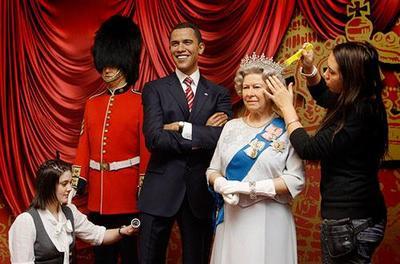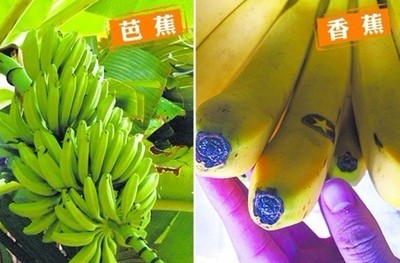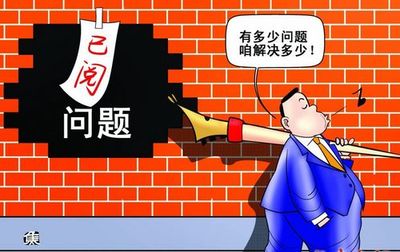【探讨的问题】
(1)销售侵权复制品,与首次销售作品复制件,在承担损害赔偿责任的主观要件上,有何不同?
(2)销售侵权复制品的行为,是直接侵权行为,还是间接侵权行为?
英国版权法第16(1)条规定了权利人六项专有权利(或者说六个受权利人限制的行为):
16Theacts restricted by copyright in a work.
(1)Theowner of the copyright in a work has, in accordance with thefollowing provisions of this Chapter, theexclusiveright to do the following acts inthe United Kingdom—
(a)tocopythe work (seesection 17);
(b)toissuecopies of thework to thepublic (seesection 18);
(ba)torent orlend thework to thepublic (seesection 18A);]
(c)toperform, show orplay thework inpublic (seesection 19);
(d)tocommunicatethework to thepublic (seesection 20);]
(e)tomake an adaptationof the workor do any of theabove in relation to an adaptation (seesection 21);
相应地,第17,18,18A,19,20,21条就规定了六个直接侵权行为

1.17.Infringementof copyright by copying.
2.18.Infringementby issue of copies to the public.
3.18A.Infringementby rental or lending of work to thepublic.
4.19.Infringementby performance, showing or playing of work inpublic.
5.20.Infringementby communication to the public
6.21.Infringementby making adaptation or act done in relation toadaptation.
与该法第22-26条规定的八种继发侵权(Secondaryinfringement ————)相区别,英国一般将上述直接侵权行为称为“Primaryinfringement(初始侵权)”【参见MacQeen,第127-8,第133页】。
那么,英国的“继发侵权”是指什么呢?
“Secondaryinfringement(继发侵权)”主要是指“dealingin infringingcopies of awork”,即对侵权复制品(即,初始侵权产品)的销售、进口或出口。【参见MacQeen,第128】
22 Secondary infringement:importing infringingcopy.【1.进口侵权复制品】
The copyrightin a work is infringed by a person who, without the licence of thecopyright owner, imports into the United Kingdom,otherwise than for his private and domestic use, an articlewhich is, and which he knows or has reason to believe is,an infringing copy of the work.
23 Secondary infringement:possessing or dealing with infringingcopy.【2.商业处置侵权复制品】
The copyrightin a work is infringed by a person who, without the licence of thecopyright owner—
(a)possessesin the course of a business【商业中占有】,
(b)sellsor lets for hire, or offers or exposes for sale orhire【销售或出租,许诺销售或出租】,
(c)inthe course of a business exhibits in public ordistributes【商业中展示或发行】,or
(d)distributesotherwise than in the course of a business to such an extent asto affect prejudicially the owner of thecopyright【发行,到了不合理损害版权人的程度】,
anarticle which is, and which he knows or hasreason to believe is,an infringingcopy of the work.
可以看出:
与初始侵权不同,继发侵权有更为严格的构成要件:
(1)侵权的对象仅仅限于对初始侵权产生的侵权复制品(盗版物);
(2)侵权的行为仅仅限于具有商业意义的进口、占有、销售、出租、展示、发行以及会对权利人有损害的行为。而那些为了私人使用的目的的进口,以及非商业目的的、不会对权利人造成损害的销售等行为,都不会构成继发侵权。
(3)侵权人需要有主观上的过错:知道或有理由相信其“dealing(商业处置)”的是侵权复制品。
这里,有一个容易产生困惑的问题是:继发侵权或初始侵权中的侵犯发行权、出租权等,到底有什么区别呢?或者说:销售、出租侵权复制品,到底是属于侵犯发行权(初始侵权),还是继发侵权呢?
从中国《著作权法》的规定来看,销售、出租侵权复制品显然属于直接侵犯发行权、出租权的行为。但是,《著作权法》对此规定了一个特殊的侵权构成要件(或者说免责条件):能否证明该侵权复制品有合法来源(即是否不存在过错)。【参见:作权法第五十三条复制品的发行者或者复制品的出租者不能证明其发行、出租的复制品有合法来源的,应当承担法律责任。】
这样,就存在着一个理论上的问题:如果说这种行为是属于对专有权的直接侵犯,那么,理论上,无论侵权人是否存在过错,都构成侵权。既然如此,这里为什么需要增加一个“过错”要件呢?
显然,初始侵权行为和继发侵权行为确实不是属于完全同一性质的侵权行为,尤其是对侵权人的主观过错的要求是不同的。这也许正是英国法把“dealing(商业处置)”侵权复制品的行为专门从一般的直接侵权行为(初始侵权)中分离出来,单独规定“继发侵权”的一个非常合理和合乎逻辑之处。
另外,讲到这里,可能还有一个引起困惑的问题是:如果销售侵权复制品是继发侵权,而不是初始侵权中的侵犯发行权,那么,侵犯发行权又是指什么呢?
产生这个疑问其实是基于这样一个事实:一般来说,如果一个复制品是经过权利人合法授权的,版权人一般都会明示或者暗示授权其发行,以后就导致权利用尽,很少在这种情形下会发生侵犯发行权的案件。因此,发行权在大多数情况下其实就是控制那些销售侵权复制品的行为的。
但是,“即使那些经过版权人授权的复制品,也会侵犯发行权,尽管这比较罕见,……比如,印刷商经版权人授权印刷了图书,这是,它的一个职员偷了这些书,并将它们销售出去。”【参见Bainbridge,第175页】
还有一个案例:HRH The Prince of Wales v Associated NewspapersLtd (No 3)
http://www.5rb.com/case/hrh-the-prince-of-wales-v-associated-newspapers-ltd-no-3/
威尔士王子有一些关于其海外旅行的私人杂志,并制作了小额的复制品供私密好友圈传阅。一个报社获得了一个复制件,并摘录了杂志中的一部分加以出版,法院认为以前的传阅行为没有构成向公众的发行,因此,该报社的出版行为仍然侵犯了发行权。【参见MacQeen,第147页。不过,存疑:法院为什么不说这是侵犯复制权?】
 爱华网
爱华网


